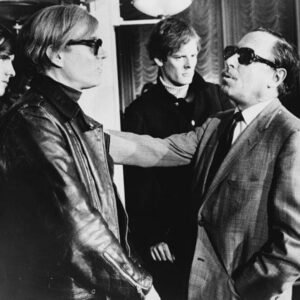Early Life and Rise to Fame
Muhammad Ali, born Cassius Marcellus Clay Jr. on January 17, 1942, in Louisville, Kentucky, grew up in a racially segregated America. At the age of 12, he discovered boxing when a police officer and boxing coach, Joe Martin, introduced him to the sport. His incredible speed, footwork, and confidence quickly set him apart. In 1960, he won a gold medal at the Rome Olympics in the light heavyweight category, marking the beginning of his legendary career.
World Heavyweight Champion
Ali turned professional shortly after the Olympics and gained a reputation for his brash confidence and unique boxing style. In 1964, at just 22 years old, he shocked the world by defeating Sonny Liston to become the heavyweight champion of the world. Declaring himself “The Greatest,” he captivated audiences with his poetic trash talk and unmatched ability in the ring. Shortly after his victory, he converted to Islam and changed his name to Muhammad Ali, aligning himself with the Nation of Islam.
Vietnam War Controversy and Exile from Boxing
In 1967, Ali refused to be drafted into the U.S. military during the Vietnam War, citing religious beliefs and opposition to the conflict. As a result, he was stripped of his heavyweight title and banned from boxing for three and a half years during what could have been his prime. Despite facing severe criticism and financial struggles, he stood by his principles, becoming a symbol of resistance against racial and political injustice.
Return to Boxing and Legendary Fights
Ali made his return to the ring in 1970 and quickly proved he was still a dominant force. In 1971, he fought Joe Frazier in the famous “Fight of the Century,” suffering his first professional loss in a grueling 15-round battle. However, Ali bounced back, reclaiming the heavyweight title in 1974 by defeating George Foreman in the historic “Rumble in the Jungle,” where he introduced his “rope-a-dope” strategy. In 1975, he fought Frazier again in “The Thrilla in Manila,” one of the most brutal and legendary boxing matches of all time.
Legacy Beyond the Ring
Ali retired from boxing in 1981, finishing with a record of 56 wins and 5 losses. His impact extended far beyond sports. He was a vocal advocate for civil rights, humanitarian causes, and global peace efforts. In 1984, he was diagnosed with Parkinson’s disease, yet he remained an influential figure, lighting the Olympic flame at the 1996 Atlanta Games and receiving the Presidential Medal of Freedom in 2005.
Muhammad Ali was more than just a boxer; he was a cultural icon who transcended sports and left an indelible mark on history. His charisma, bravery, and unwavering principles continue to inspire generations. From his early days as a young fighter in Louisville to his status as a global icon, his legacy remains one of resilience, greatness, and the relentless pursuit of justice.
References
- Hauser, T. (1991). Muhammad Ali: His life and times. Simon & Schuster.
- Remnick, D. (1998). King of the world: Muhammad Ali and the rise of an American hero. Random House.
- Roberts, J. (2016). Muhammad Ali: A tribute to the greatest. Time Inc. Books.
Picture References from Our Social Media




